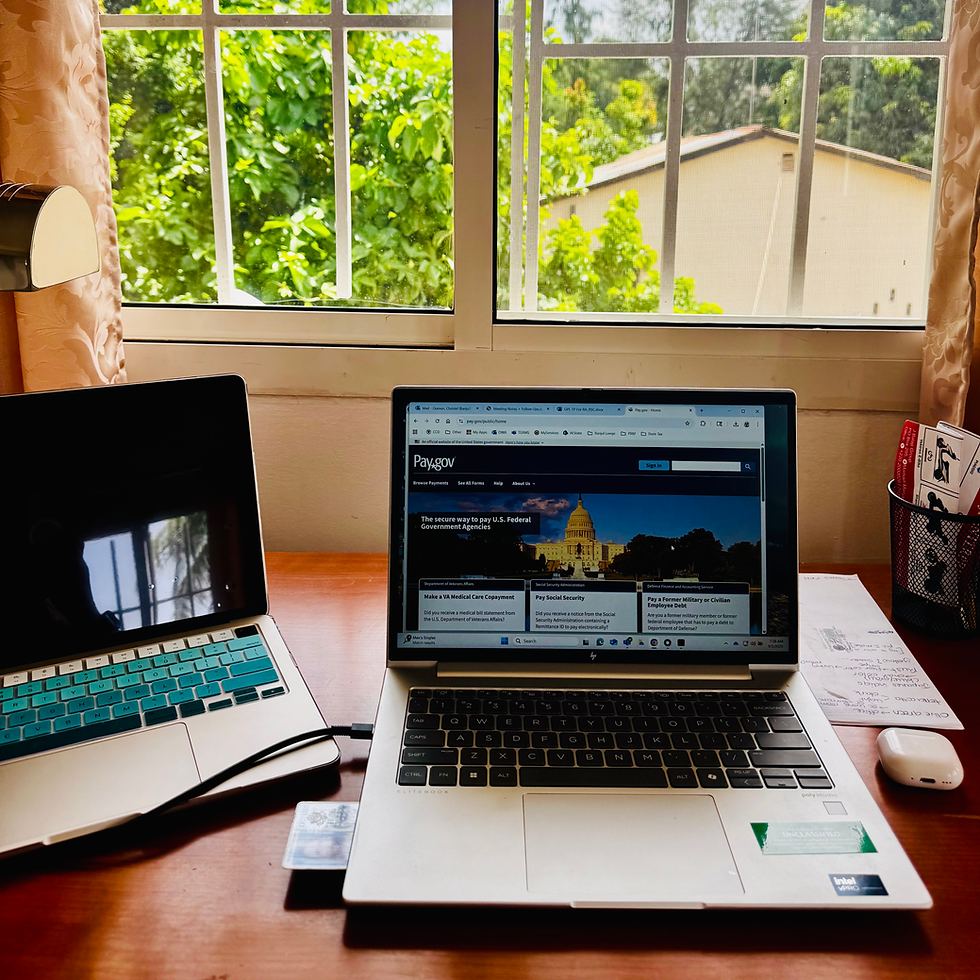Gambia Prep: Consumables
- Owner

- Aug 10, 2025
- 4 min read
Updated: Aug 31, 2025
Because we’re moving to The Gambia for our next assignment (#8!) we can bring up to 3,750 pounds of consumables—food, drinks, and toiletries. That’s because, per State Department regulations, in The Gambia (and a number of other countries) obtaining basic household items locally is too difficult or expensive. They figure we deserve to eat and drink our familiar stuff, which is nice of them. Bringing food and drinks from the USA also helps to be properly set up for hosting dinners and receptions—something we’ll do exponentially more of now that my spouse is in the “executive office.”
In case you wonder, 3,750 pounds is a lot when it comes to food! You can’t buy that much without spending an entire years’ grocery budget and probably ending up with too much/expired food. Thankfully, we’re allowed to divide it up and do an additional shipment next year, as long as we stick to the weight limit. So we’ll buy half now and half later, once we’ll have lived in The Gambia for a while and know better what we need more of (Good wine? Snacks? Cleaning supplies?).
Costco runs
The obvious locale for making massive consumable purchases is, obviously, Costco. I have to admit I get some joy out of buying 3-pound bags of nuts, forever-supplies of tomato paste, and my daughter’s weight in olive oil. It’s funny. What is less fun, however, is checking expiration dates on everything and arguing over purchases with my family. Especially if that family isn’t even going to The Gambia!
It took three shopping trips to acquire all the things on my list, plus a fair amount of planning and coordination with the shipping company. I think we did well, but only time will tell if we got it right. Other FSOs ask me sometimes—because they know I’m organized and always give frank answers when asked for advice—what to buy. Here are a few tips I learned from experience.
Tried & Tested Tips
Do NOT ship laundry detergent with your other consumables. There’s a risk all the food in the shipment will end up tasting like laundry soap. I’ve lived it.
Focus on liquids. You can order dried foods through diplomatic/military mail but barely any liquids. Think: cooking oil, shampoo, peanut butter, tomato sauce, almond milk, etc.
Think about the ACTUAL amounts of cereals and snacks your family goes through in a year and plan accordingly. I’m not a snack person but my kids and their friends definitely are. So I’m loading up on the goldfish crackers and fruit-by-the foot!
Only buy family-sized bags of anything if you’re sure you can store it in airtight containers or the freezer. You can open a 3-pound bag of Doritos or a 10-pound bag or rice in the tropics, but can you eat it before they get stale or bug-infested?
Easy on the chocolate. Personally I don’t bring any (not a fan of U.S. chocolate) but it’s good to know they often turn white during transport. Makes those Reese’s peanut butter cups way less attractive!
Bring baking supplies. I’m not a big baker but even I know there is almost nothing, from flour to sugar to common ingredients like chocolate chips, that you can easily find in countries like The Gambia (or India, etc.).
Don’t ship anything fancy. I’ve heard plenty of horror stories about ruined/broken/spoiled items like expensive wine or favorite hot sauces (specially ordered from a Mexican restaurant in South California…). Don’t buy anything you’d cry over if it goes wrong.
Don’t bring things you normally don’t use. We’ve been stuck with a bunch of stuff we don’t even really like or need like packaged sauces, crackers, and plastic cutlery.
Think of “typically American” things you don’t want to live without, like Thanksgiving dinner ingredients, stuff to make s’mores with, flavored cereal, black beans, pretzels, trail mix, etc.
Obviously, it’s crucial to figure out what’s available locally and what is hard to get. I always ask multiple people at post because everyone has different tastes and levels of knowledge. For example, I asked a colleague if they have tofu in The Gambia and she replied that she hates tofu. She also couldn’t comment on certain Asian foods that have become staples for me after living in India.
Final tip: don’t worry! If you mess up you can always bring more things during your travels or order it via mail—that’s how other expats do it. From experience I know that basically every country has staples like Barilla pasta, Lays chips, Quaker oats, Coca Cola, Heinz ketchup, Kikkoman soy sauce, Colgate toothpaste, Spanish olive oil, etc.
Also, I see the absence of most American ultra processed foods as an opportunity to cook more from scratch and use fresh, local ingredients. Besides, even countries where supermarkets offered little choice just a decade ago are now probably producing or importing a lot bigger variety of things due to globalization. Or at least… that’s what I’m assuming! I’ll definitely do another post on what’s available in The Gambia and how easy it is to make do.








